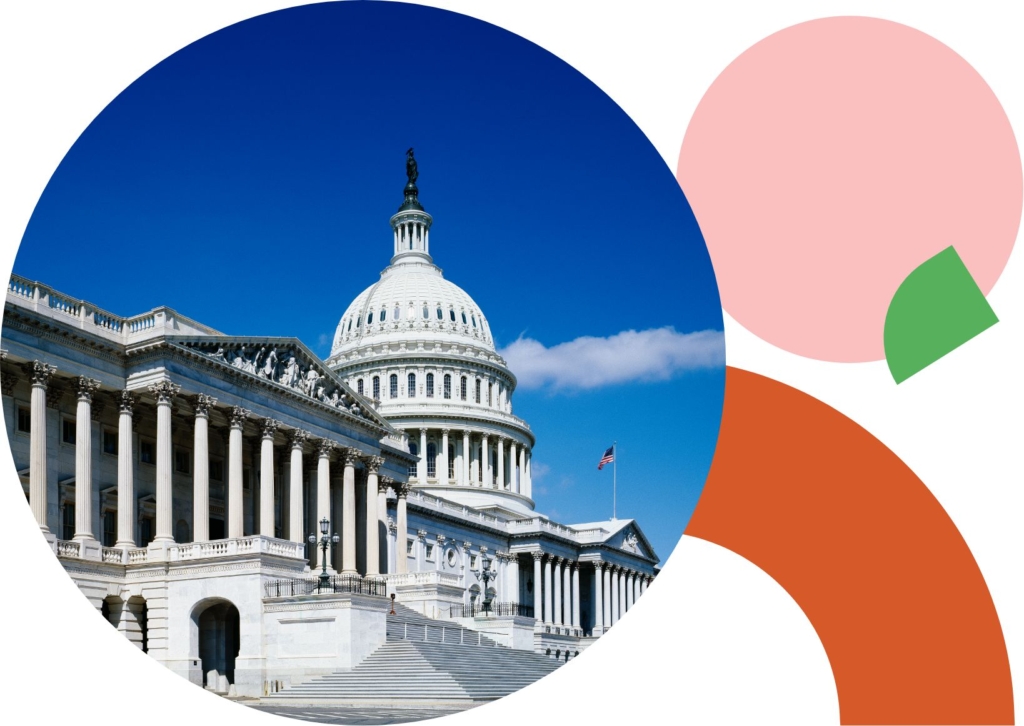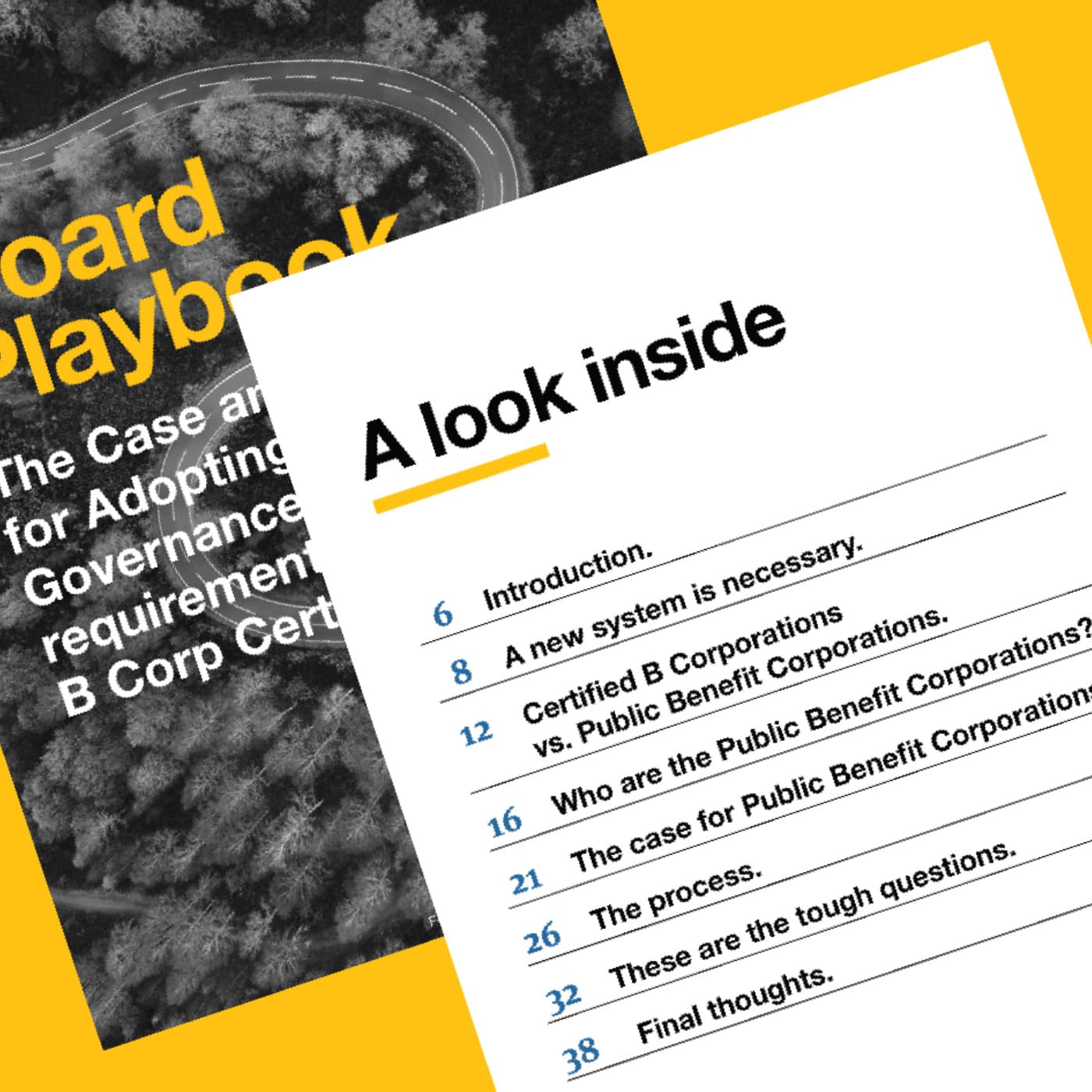
Stakeholder Economy
People and the planet must be of equal, or higher, value than short-term profits. In this new paradigm, businesses that help all communities heal and thrive are rewarded. A stakeholder-centered economy is the triple bottom line in action, a system in which human and environmental well-being are essential.
What is a Stakeholder Economy?
A stakeholder economy is a new economic system where business decisions benefit all people and the planet.
This is different from shareholder capitalism where businesses focus on profit at all costs. Stakeholder economy is a concept we have also referred to as “stakeholder capitalism” in our previous work, reports, articles, and more. The term “stakeholder economy” is often labeled as “stakeholder capitalism” by the press or other organizations, however stakeholder economy goes further and calls for policy change to actively dismantle unjust systems, policies, and practices.
A stakeholder economy requires businesses to create value for multiple stakeholders including workers, customers, communities, the environment, and shareholders. A stakeholder economy empowers business leaders to make responsible and sustainable decisions that take into consideration the impact they have on stakeholders equally with the financial value creation. This happens through tangible changes to corporate governance, laws, regulations, and incentives. Investors act as responsible owners by stewarding their portfolios toward a positive impact on society and the environment.
Governance change and increased transparency are fundamental to a stakeholder economy. To change the outcome of decisions so that businesses operate responsibly and sustainably, we must change the rules that govern those decisions. Stakeholder governance enables companies to commit to, and be held accountable for, integrating stakeholder impact into their decision-making process, balancing profit and purpose, and creating value for all stakeholders.

Why is a move towards a stakeholder economy critical?
Capitalism is the most powerful economic system created. Yet, in its current form, it is failing to meet the aspirations of billions and the needs of a warming planet. We stand at the crossroads of crisis and also an extraordinary opportunity. Capitalism is at a tipping point.
The disconnect between the needs of people and our planet and the behavior of businesses and the rules that govern them has led to growing inequality and exclusion, declining dignity for the working and middle classes, and an existential ecological crisis.
If more evidence were needed, the twin crises of the COVID-19 pandemic and the reckoning with racial injustice prove that current business models provide neither the resilience nor the fair opportunities we need for a prosperous, just society. With this change to corporate governance laws, regulations and incentives, businesses will be partners in the effort to solve these crises rather than barriers to progress.
We know that it’s not enough for a small group of individuals to voluntarily commit to serving all stakeholders. Individual action cannot overcome the pervasive structural and cultural focus on profit at all costs. We must transition from shareholder primacy to stakeholder capitalism.

The History of the Stakeholder Economy and Stakeholder Capitalism Movement
To help business change the way decisions are made and move us towards a stakeholder economy, B Lab created: benefit corporation. It has seen transformative momentum:
-
2010
Maryland passes first benefit corp law.
-
2012
California benefit corp law goes into effect and Patagonia elects benefit corporation status.
-
2013
Delaware passes public benefit corporation legislation.
-
2015
Benefit corporation legislation passes in Italy.
-
2017
First benefit corporation IPO.
-
2019
B Lab launches effort to articulate a broader policy agenda focused on moving from shareholder primacy to stakeholder capitalism.
-
2020
- Spring:
-
- Lemonade & Vital Farms go public
- Danone adopts Societie A mission in France
- September: B Lab publicly releases “From Shareholder Primacy to Stakeholder Capitalism”
- November: B Lab U.S. & Canada teams up with The U.S. Impact Alliance to draft a memo calling for a White House Initiative on Inclusive Economic Growth
- December: B Lab U.S. & Canada and the White House Coalition share the proposal for the White House Initiative on Inclusive Economic Growth with the Biden-Harris Transition Team.
-
2021
- January: Veeva Systems & Amalgamated Bank hold vote to adopt benefit corporation status
- April: Public launch of the proposal for the White House Initiative on Inclusive Economic Growth with Darren Walker, President of the Ford Foundation.
- June: B Lab U.S. & Canada and Certified B Corporations submit letters to the Security and Exchange Commission in support of mandatory climate disclosure
- August: House of Representatives send letter to the White House in support of the proposal for a White House Initiative on Inclusive Economic Growth.
- September: Senator Warner, Senator Van Hollen & Senator Feinstein send letter
- December: Blackrock’s annual investment stewardship statement recommended 5 policy changes and the 5th: support for conversion to public benefit corporation.

Stakeholder Governance in Practice
We won’t change the outcomes until we change the rules that govern business decision-making. All these companies have legally become benefit corporations and are accountable to more than just profit.

CREDIT: Happy Family Organics
“Happy Family Organics has been a Certified B Corp since 2011 and a benefit corporation since 2017. Our acquisition by Danone in 2013 was the first step on a collaborative journey of learning and improvement as our benefit corporation status and our commitment to our stakeholders has inspired the rest of Danone to follow our lead.
Danone has now adopted a legal commitment to purpose at the global level, known as the “Entreprise à Mission” in France, and has an ambition to be fully certified across the company by 2025, signaling to the world that they focus on creating value for stakeholders in addition to shareholders. Happy Family is proud to be a Certified B Corporation, and continues to advocate, push for progress, and make a difference for a better tomorrow for babies everywhere.”
— HAPPY FAMILY ORGANICS

CREDIT: Patagonia
“The challenges we face as a society require leadership. Patagonia became one of the first California benefit corporations in 2012, in order to legally enshrine our longstanding environmental and social values into the foundation of our business. Our articles of incorporation require that we confront urgent environmental threats by investing our resources as a growing business into environmental nonprofits. Being a benefit corporation holds us accountable to not just our mission but also our activism - to save our home planet.”
PATAGONIA
Three Bold Stakeholder Economy Ambitions:
Change the Rules
Accelerate the adoption of B Lab’s policy ideas to transition from shareholder primacy to a stakeholder economy.
Drive Collective Action on A Stakeholder EcONOMY
Collaborate with business and nonprofit leaders to encourage the transition to a stakeholder economy.
Redefine Leadership
Encourage companies to adopt benefit corporation status to provide a demonstration effect about how business can create value for stakeholders and shareholders.

Why and How to Become a Benefit Corporation
By registering as a benefit corporation, businesses join highly respected companies. They are at the forefront of a growing movement of changing the rules of the game.
Benefit corporations retain all the virtues of the corporation for aggregating and allocating capital, but eliminate the excesses of 20th century practices that valued profits over our shared future. It provides a trust-enhancing operating system. This shows investors and entrepreneurs from every industry what the future Fortune 500 looks and acts like.
Benefit corporations:
- Reduce Director liability
- Maintain stockholder rights and could increase access to mission-aligned capital
- Receive bi-partisan support.
- Build trust by fortifying a reputation for leadership.
- Win the competition for talent and customers.
- Are resilient.
The Board Playbook: The Case and Process for Adopting Benefit Governance: This is the most practical guide to date for corporations incorporated in Delaware to adopt the highest form of stakeholder governance; becoming a DE Public Benefit Corporation (PBC).
The purpose of this guide is to help executives, investors, and directors navigate the journey to adopt PBC status. We hope this guide serves as a resource in preparing for the necessary conversations and presenting examples of how the market has reacted to the idea of expanded fiduciary duty that is an inherent component of a stakeholder economy.
FEATURED PARTNER: SHAREHOLDER COMMONS

Drive a Stakeholder Economy
How to Partner with B Lab U.S. and Canada
Discover how to partner with us to drive a stakeholder economy or how to support our partner strategies.
Related Stories and Resources.
-

Best for the World
2021 Best For The World Governance: How a Focus on All Stakeholders Shapes Better Businesses
Read More -

-
